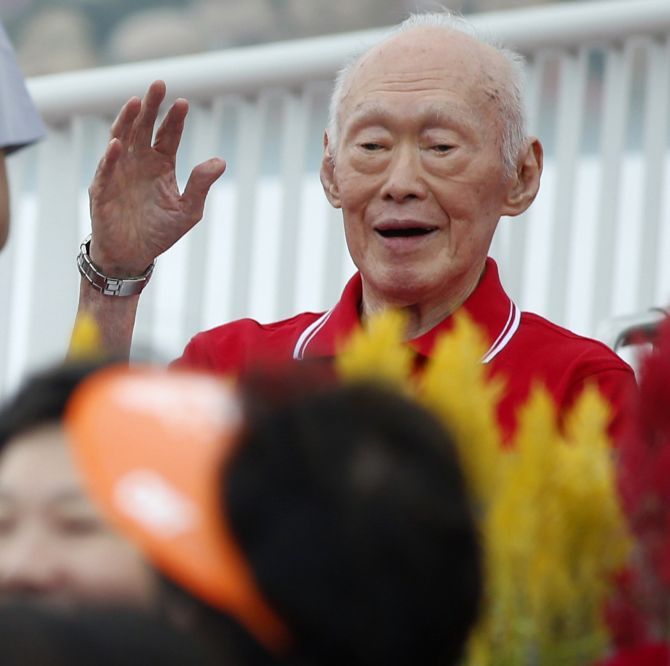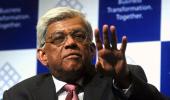
Lee Kuan Yew, Singapore's founding father who dominated the country's politics for more than half a century and transformed the former British colony into a global trade and finance powerhouse, died aged 91 on Monday.
Lee, Singapore's first prime minister, "passed away peacefully at the Singapore General Hospital," the government said. He had been under intensive care for pneumonia since early February 5.

In an emotional televised address, his son and current Prime Minister Lee Hsien Loong paid tribute to him. "He fought for our independence, built a nation where there was none, and made us proud to be Singaporeans. We won't see another man like him."
Junior Lee said that his father would lie in state from 25-28 March at Parliament House so the public could pay their respects.
The announced of Lee's death in the early hours of the morning prompted a flurry of tributes from world leaders.

Prime Minister Narendra Modi described as a lion among leaders. "A far-sighted statesman and a lion among leaders, Mr Lee Kuan Yew's life teaches valuable lessons to everyone. News of his demise is saddening," he said in a statement. "In this hour of bereavement, our prayers are with Mr. Lee Kuan Yew's family and the people of Singapore. May his soul rest in peace," the PM said.
United States president Barack Obama called Lee a "true giant of history" while UN secretary-general Ban Ki-moon described him a "legendary figure in Asia". The Chinese foreign ministry called him "a uniquely influential statesman in Asia"

A steady stream of people arrived at the hospital and the Istana, the prime minister's office, to offer their condolences.
Singapore declared seven days of national mourning starting Monday and will hold a state funeral for Lee on March 29. The city-state's prime minister for 31 years, Lee is widely respected as the architect of Singapore's prosperity.
Born in 1923, Lee became prime minister in 1959 when Singapore, a tiny spit of land with no natural resources and a polyglot population of Chinese, Malays and Indians, was still British territory and beset by riots and unrest. He presided over Singapore's bitter split from Malaysia in 1965.
Lee's core principles -- including a focus on clean and efficient government, business-friendly economic policies, and social order --helped attract massive investment and many of the world's biggest companies to Singapore after he became prime minister, catapulting living standards to First World status from Third World levels in hardly more than a generation.
A charismatic figure, Lee co-founded the People's Action Party, which has governed Singapore since 1959.
Lee, a Cambridge-educated lawyer, also attracted criticism for stifling media freedom and for the harsh treatment of political opponents. He quit as prime minister in 1990.
But there were indications Lee's health had been slipping in recent years.
In 2010 he was admitted to the hospital with a chest infection and in early 2013, Lee -- then 89 -- was hospitalised and treated treated for "stroke-like symptoms."
Lee is survived by his two sons, current Singapore Prime Minister Lee Hsien Loong, 63, and Lee Hsien Yang, 57, daughter Lee Wei Ling, 60, seven grandchildren and two siblings.











 © 2025
© 2025